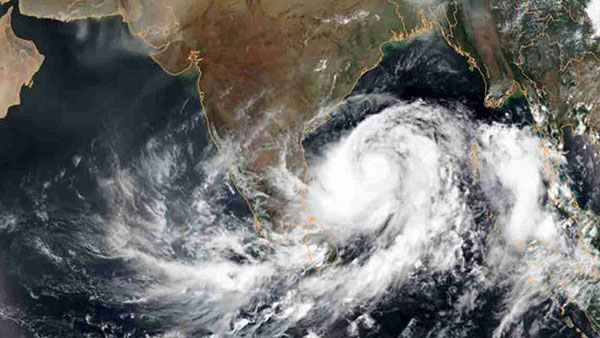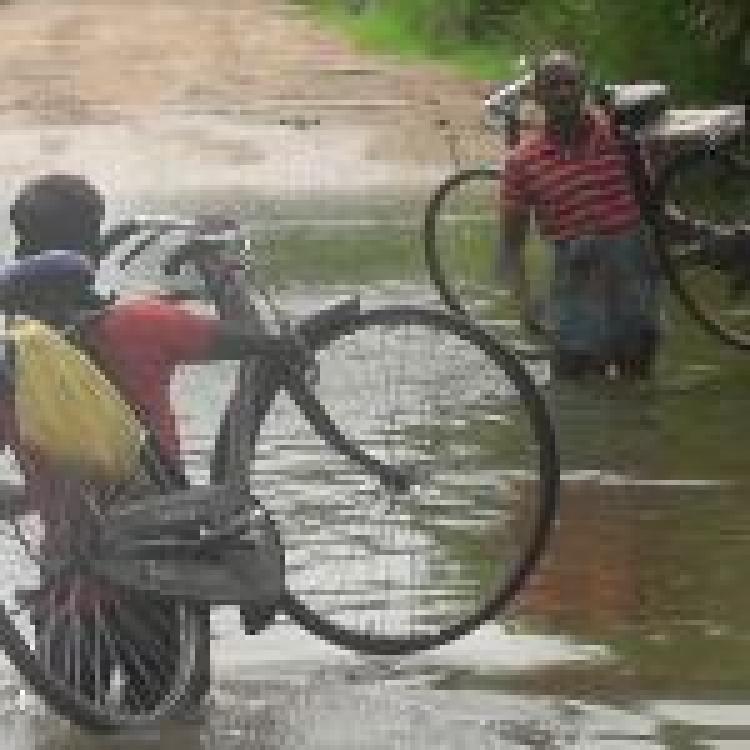
The North-East and Tamil Nadu have been put on red alert following the approach of Cyclone Nivar, which is approaching with a speed of 145kph.
The department of Meteorology said that 100-150mm of rain can be expected at several places in the North on Tuesday and Wednesday, with some isolated areas receiving 150mm or rain.
The Sri Lankan Meteorology Department said that naval and fishermen communities across the North-East were warned not to venture into the sea from areas extending from Puttalam to Pottuvil, Kankasanthurai, Trincomalee and Batticaloa.
They added that
“Those who are out at aforementioned sea regions are advised to return to coast or move to safer areas immediately”
Photo of Mullaitivu
Tamil Nadu prepares
Emergency restrictions on the movement of people and a public holiday have been declared in Tamil Nadu as the very severe cyclonic storm approaches.
The cyclone is forecast to make landfall on Wednesday and is expected to bring powerful winds with speeds of 145kph and heavy rainfall to areas already battered by storms this year.
The Indian Metrological Department stated that
“Cyclone Nivar to cross Tamil Nadu-Puducherry coasts between Karaikal and Mamallapuram [two towns in Tamil Nadu and Puducherry] as a very severe cyclonic storm during the late evening of 25 November,”
A Climate Crisis
Last year the Germanwatch Institute presented the results of the Global Climate Risk index 2020 during COP25 in Madrid. The analysis considered the impacts of extreme weather events and the subsequent socio-economic loses they cause.
India was 5 on the list with a climate risk index score of 18.17 and Sri Lanka followed in 6 with a Climate Risk Index score of 19.
Sri Lanka could lose a substantial part of its population due to future climate migrations the index notes, whilst India is susceptible to extreme heat, floods and sandstorms.
Read more from the Colombo Gazette, the Independent, and Iberdrola


